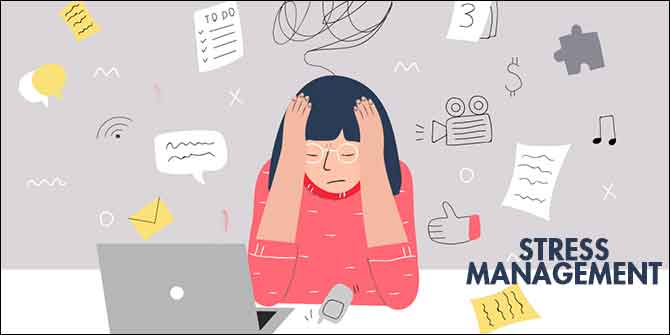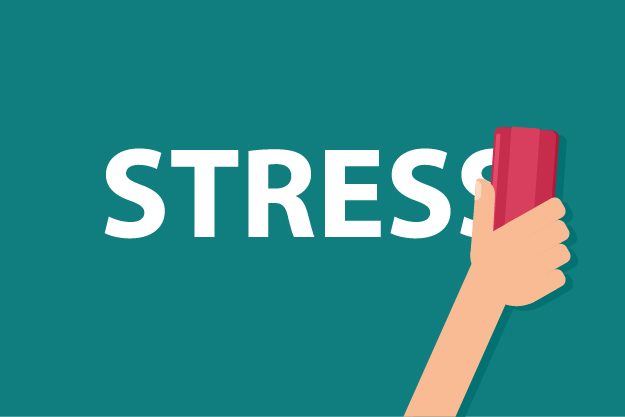The feeling of emotional or physical tension is called stress. Stress could arise out of events and thoughts. Stress is the reaction of the body to a challenge or demand. The stress causing factors are referred to as “stressors” or stress triggers. Stress is good, as it enhances our capabilities to overcome the challenges. Such a stress which can excite us, motivate us, make use of our productive energy to gain more focus and helps us to take on the challenge positively is referred to as the eustress. Lack of any stress results in boredom. However, when the resource at our disposal to tackle a challenge falls short of the requirement, it gives rise to stress or distress which is really bad. When the stress is no longer manageable, we finally reach out to burn out. However, we classify stress into two main types. One is called as acute stress and the other referred to as chronic stress. Acute stress is a short term stress that goes away quickly; however chronic stress is something that lasts for a longer period of time. Acute stress is not harmful, but chronic stress can lead to emotional and physical health issues. Chronic stress can lead us to health issues such as diabetics, obesity, heart diseases, blood pressure matters and depression. The Holmes Rahe stress scale points out that the major factors which contributes to depression are associated with relationship issues such as death of near ones, divorce, separation from family etc. Stress cannot be avoided, it can only be managed. Even though there are a whole lot of stress management strategies available, one good methodology to mitigate chronic stress would be like the one below.

Acute stress can happen on account of an immediate challenge in front of us. It is natural to have these challenges and we feel that momentary stress. However, in chronic stress, even though challenges do not come at every moment, we continue to have the stress. This chronic stress can be tracked to the continuous negative thoughts and worries we have on particular matters. These repetitive thoughts trigger unhealthy emotions driving us to stress. If we are able to shut down these thoughts, or alter our thoughts, no emotions would be triggered and there would be no release of stress hormones. Hence, to get a good relief, burn the thought- emotional highway leading to destination stress.
Story
A trainer walked around a room while teaching stress management to an audience. As she did so, she raised a glass of water. Everyone expected they’d be asked the old “half empty or half full?” question. Instead, she asked, “How heavy is this glass of water?”
The answers ranged from 100 gm to 250 gm.
She replied, “The absolute weight doesn’t matter. What’s important is how long I hold it. If I hold it for a minute, it’s not heavy. If I hold it for an hour, I’ll have an ache in my arm. If I hold it for a day, my arm will be numb and feel paralysed. In each case, the weight of the glass doesn’t change but, the longer I hold it, the heavier it becomes”.
She continued, “The stresses and worries in life are like that glass of water. Think about them for a while and nothing happens. Think about them a bit longer and they begin to hurt. And if you think about them all day long, you will feel paralysed—incapable of doing anything”.
It’s important to remember to let go of your stresses. Put your burdens down when you can. Don’t carry them for hours and days and months.
Remember to put down the glass!
Activity
Identify three factors that keep you pressing day in and day out inducing stress.
____________________________________________________________________________________________________
Quote
“The greatest weapon against stress is our ability to choose one thought over another” ~ William James.
Takeaways
- The feeling of emotional or physical tension is called stress. Stress could arise out of events and thoughts. Stress is the reaction of the body to a challenge or demand.
- To get a good relief from stress, burn the thought-emotional highway.


